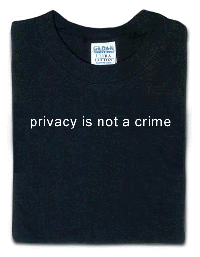 At first it seemed a joke to Bravour, a shanty choir from Woerden. When the Dutch police introduced a new uniform in 2014, it turned out to be the spitting image of the choir’s uniform, dark blue with broad yellow bands across the chest.
At first it seemed a joke to Bravour, a shanty choir from Woerden. When the Dutch police introduced a new uniform in 2014, it turned out to be the spitting image of the choir’s uniform, dark blue with broad yellow bands across the chest.
“We’ve suddenly gained tens of thousands of new members”, the choir’s chair person Ad de Goey quipped in Algemeen Dagblad that year. “The local police also thinks it’s funny. Well, they’re all welcome to join as far as I am concerned.”
But in November that year the joke turned sour when the police let on that somebody was going to have to change their uniforms—and the somebody wasn’t going to be the police. Although the article doesn’t mention it, the police actually had the law on their side—impersonating a police officer, even if it is only by dressing like one, carries a maximum prison sentence of three months.
The shanty choir were all good sports about it. Not only did they come up with a new uniform, but on 26 February 2016 they invited the police choir from Gelderland to the Cross Church in Woerden for a joint performance. As Joe Cocker’s You Can Leave Your Hat On was played over the tannoy, Bravour members performed a striptease in which they tore off their old uniforms, revealing the new uniforms underneath. From now on the shanty choir will perform in dark blue with a broad, light blue wave.
See also: The Netherlands has finally become a police state
(Illustration: these people may dress like a bunch of entertainers, but they are actually Dutch police officers; source: politie.nl)








Woman trolls offline, bad mistake!
Cristel was known to be a respectable woman, living a model life with her husband and dog in a detached house. However, behind those immaculate walls, AD says, the 51-year-old was busy writing letters to her neighbours signed with “a mother of three children” and “the group” in which she told the recipients that they were ugly, had ugly faces and big posteriors, and that she hoped their children wouldn’t grow up to be as ugly.
Don’t trash talk my children, a 32-year-old victim must have thought, and she contacted the neighbourhood cop who as it happens had also received hate mail from the same author. The police discovered about 15 people had received hurtful and sometimes threatening letters. Eventually the author was caught on 15 October and confessed immediately.
Last week during a meeting in the village’s only restaurant, ‘T Hoekske, the letter writer apologised to the victims. Her husband told people that his wife is undergoing treatment, although it’s not clear from the newspapers if it’s for her hateful tendencies.
Since none of the victims filed charges, the police won’t prosecute, much to the chagrin of the online peanut gallery who immediately branded her as a lunatic and a terrorist and clamoured for her arrest. This in turn led columnist Luuk Koelman to conclude that the woman’s biggest crime wasn’t writing hate mail, but doing it through the traditional post.
“On Internet forums it is custom to belittle everybody who disagrees with you. In real life the police may hunt you down when you tell a neighbour you think she is ugly. Online you can safely express your desire to see her dead or wracked with cancer. Nobody bats and eyelid at that.”
(Photo by Rijksdienst voor het Cultureel Erfgoed, some rights reserved)
Share this:
Tags: borders, commenters, hate, hate mail, letters, police, policing, post, Zeeland